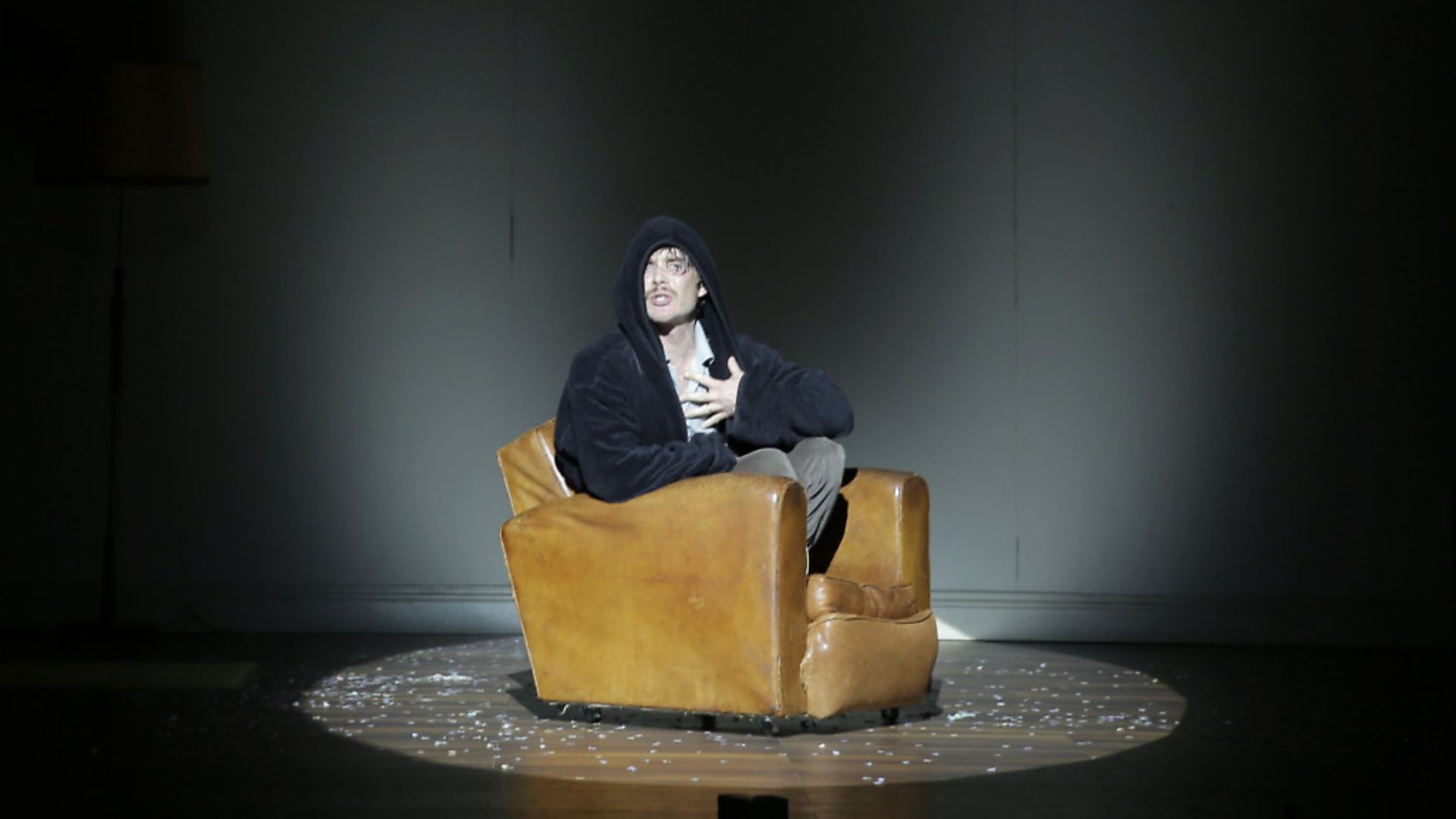
Grief is the word as TIM WALKER reviews the production featuring Cillian Murphy.
Barbican, London, until April 13
Just after 9/11, the Queen observed that ‘grief is the price we pay for love’. The sentiment may not have been original – a psychiatrist named Dr Colin Murray Parkes had more or less coined the phrase in an earlier book about bereavement – but no fully-functioning human being who has lost anyone that he or she has loved would dispute the truth of the words.
Max Porter’s highly regarded book Grief is The Thing With Feathers was an intriguing mixture of poetry and prose that went some way towards defining grief. Notwithstanding the fact it was basically unstageable, the director Enda Walsh has now seen fit to put it on to the stage with Cillian Murphy playing a father trying to bring up his two young sons after the death of their mother.
It is one of those modish plays that a certain kind of theatre-goer is never going to find remotely appealing. There is no beginning, middle and end to it as such, and if there is such a thing as a ‘feelbad’ piece of work – as opposed to a feelgood one – then this is assuredly it.
The adventurous writing and imagery – most notably the a crow being employed to symbolise death and grief – has been turned into a hi-tech piece of theatre, with words often being written randomly across the back of the stage by an unseen hand and bursts of 1980s pop music.
The father walks around in hooded robes like a malevolent monk some of the time and there is a scene that just seems plain cruel when the father asks his sons (David Evans and Leo Hart alternating in the roles with Taighen O’Callaghan and Adam Pemberton) to recreate their mother with crayons or objects found around the house.
I don’t say that it is an easy or entirely satisfying play to watch – and certainly it could not be called great entertainment for all the family – but it is still interesting, and, approached in the right frame of mind, definitely thought-provoking.
Murphy’s performance is undoubtedly very strong and the inter-action he has with the children is immensely moving. I suppose if the play is upsetting and sometimes very disorientating, then that is because bereavement is, too.
At the start it is maybe trying too hard, but, towards the end, it seems to calm down and level more with the audience. The father says that you don’t ever move on from the death of someone you really love and the pain is always there. That doesn’t make for a happy upbeat ending to the play, but it is, of course, true enough.
Rating: 3/5









